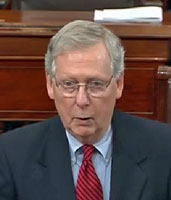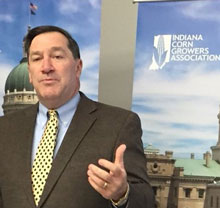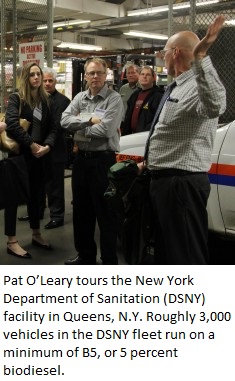According to a blog from Geoff Cooper, senior vice president for the Renewable Fuel Association (RFA), U.S. ethanol exports did well in December 2015 with 81.7 million gallons (mg) of product exported, 39 percent higher than November 2015. Canada was the top destination receiving 21.3 mg followed by Oman (13.4 mg), China (10.6 mg), the Philippines (8.8 mg), and the Netherlands (8.8 mg). U.S. ethanol exports totaled 836 mg in 2015—identical to the 2014 final tally according to recent report from RFA that includes details on top export destinations, shifts in the marketplace, ethanol import volumes, the value of exports, and other key data regarding U.S. ethanol trade in 2015.
 Denatured fuel ethanol exports totaled 50.3 mg in December, the highest monthly total of the year and up 57 percent from November. At 19.3 mg, Canada was again the leading importer of denatured product. December exports of undenatured fuel ethanol tallied at 28.6 mg, up 18 percent from November. The Philippines (8.8 mg), Brazil (6.4 mg), the Netherlands (4.5 mg), Belgium-Luxembourg (2.6 mg), and Mexico (2.2 mg) were the top five markets for undenatured product in December.
Denatured fuel ethanol exports totaled 50.3 mg in December, the highest monthly total of the year and up 57 percent from November. At 19.3 mg, Canada was again the leading importer of denatured product. December exports of undenatured fuel ethanol tallied at 28.6 mg, up 18 percent from November. The Philippines (8.8 mg), Brazil (6.4 mg), the Netherlands (4.5 mg), Belgium-Luxembourg (2.6 mg), and Mexico (2.2 mg) were the top five markets for undenatured product in December.
U.S. fuel ethanol imports fell to 9.4 mg in December, less than half of the November import volume. Total imports of fuel ethanol finished the year at 93.2 mg, up slightly from 2014. Brazil represented more than 99 percent of the December imports with the remaining imports coming from Germany.
Exports of U.S. distillers dried grains with solubles (DDGS)—the animal feed co-product manufactured by dry mill ethanol plants increased slightly in December, with 988,356 metric tons (mt) of outbound shipments. That was up 5 percent from November, but still well below monthly export levels recorded from May through October. DDGS exports finished the year at 12.55 million mt, a new annual record.
China remained as the top market for U.S. DDGS exports in December, despite setting an 11-month low. China received 226,049 mt, down 20 percent from November and less than one-quarter of the DDGS volume imported as recently as July. However, other markets saw big increases including Mexico, South Korea, Canada, and Vietnam. For the full calendar year, China was the top market followed by Mexico.
 Our latest ZimmPoll asked the question, “Do Iowa Caucus results reflect ag views?”
Our latest ZimmPoll asked the question, “Do Iowa Caucus results reflect ag views?”










